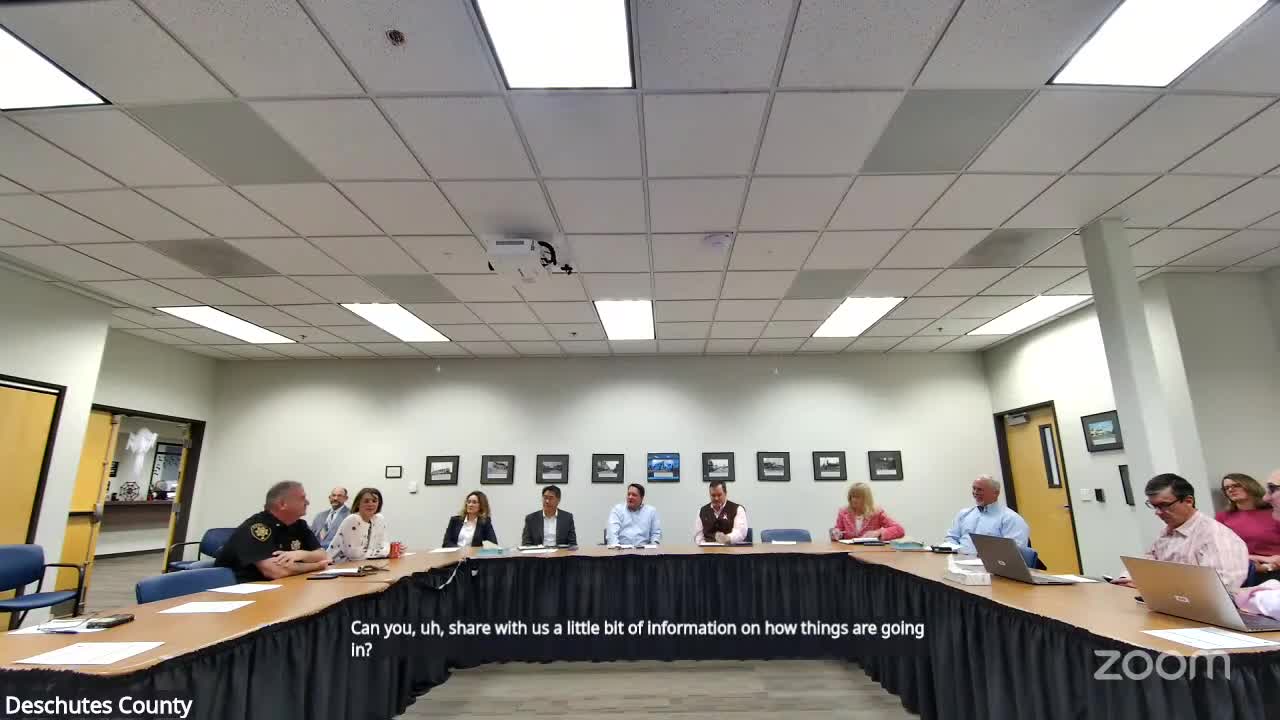Dedicated juvenile dependency docket credited with reducing time to disposition in Deschutes County
Get AI-powered insights, summaries, and transcripts
Subscribe
Summary
Judges told county leaders that a dedicated juvenile dependency docket and focused scheduling implemented in July 2024 have raised the share of dependency cases disposed within 60 days to roughly 67 percent for the January–September 2025 period.
Judge Flint and other bench members described operational changes to the juvenile dependency docket that they say materially improved timeliness for cases involving children removed from their parents.
The court moved in July 2024 to a dedicated dependency calendar with one judge and one courtroom handling short matters and running trials three days per week; judges described efforts to prepare multiple cases for trial so prosecutors could bring two or three cases "deep" into the calendar to ensure jurors, parties and attorneys were available. Judge Flint said the change followed long‑running delays: local data showed timely disposition within 60 days had fallen to the low‑20 percent range during COVID and thereafter.
Since the change, the court reported a series of improvements: a 20 percentage‑point increase in 2024 versus 2023 and, for January–September 2025, approximately 67 percent of dependency cases reaching disposition within 60 days. Statewide averages were reported at roughly 47 percent for the same benchmark, making the county’s improvement notable in comparison.
Judges and staff emphasized that the dedicated calendar required cooperation across agencies and support from other judges to carve out judicial time. The objective, they said, was to resolve jurisdictional fact finding quickly so children could either return home or be placed with services or substitute care without prolonged delay.
Court leaders said they plan to gather and present more data to stakeholders and expected a consultant report on broader court operations later in 2026. No changes to statute or external funding were decided in the meeting.
